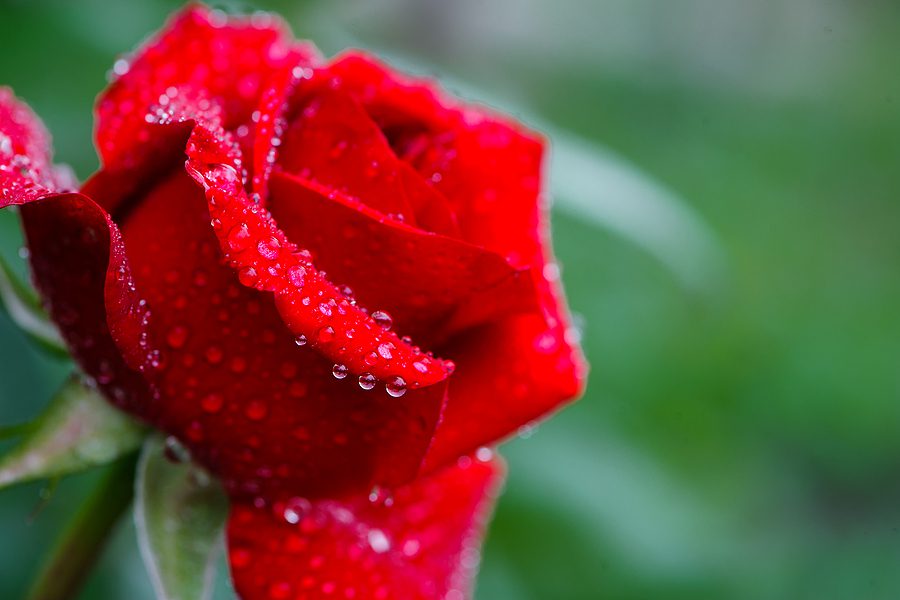Albuquerque Landscaping Rose Gardening Success Strategies to Live By

Rose garden owners in Albuquerque landscaping have many tips and tactics to cultivate the ideal bloom. Some people swear by a daily dose of Beethoven, while others prepare alfalfa tea every morning. Still, other rose enthusiasts assert that bananas are the secret to their show-stopping blooms. Separate the facts from the fantasy and figure out which mysteries are worth investigating.
Which Is It: Myth or Reality? Growing Roses
Bananas
Phosphorus is added to the soil to encourage flowering. The application of two to three banana peels every week per rose plant is recommended by many enthusiasts to supply plants with a little bit of phosphorus. Use one of the following applications of bananas to their full potential:
Banana peels, after chopped, can be buried near the base of a rose (in the area beneath leaves, but not against the stem). Take extra precautions to avoid upsetting the roots. Bury peels roughly four inches deeper than Diggi does to outsmart him.
Creatures of the sea
Pulverize peels in a blender, adding water if needed. Give the solution some time to rest for fifteen minutes. Direct application to the soil beneath a rose is recommended. Any solid remnants should be discarded into the compost pile.
Music of the Classical, Country, and Rock ‘N’ Roll Genres
Some gardeners say that listening to music, whether country, rock ‘n’ roll or classical, results in healthier plants. This observation hypothesizes that the vibrations that make up musical tones affect plant growth. However, you shouldn’t spend money on outside speakers just yet. The research done on this subject does not provide a clear answer.
Alfalfa
Roses receive a substantial amount of the nutrients they need from alfalfa, including nitrogen, calcium, iron, phosphorus, and other elements, as well as a fatty acid known to stimulate plants’ growth. To care for rose bushes, incorporate alfalfa meal or pellets into the soil surrounding the bushes (1 cup for large bush: one-half cup for small roses) (1 cup per large bush: one-half cup for miniature roses).
You may also make alfalfa tea by rehydrating alfalfa flour or pellets in water. This will allow you to brew the tea. Learn how to make and take advantage of alfalfa tea with these helpful hints from the American Rose Society.
The Real Secrets to Success Can Be Learned from Caring for Roses
- If you don’t pay attention to the fundamentals, no amount of advice from rose specialists or other experts will help you cultivate the most robust plants. If you pay attention to these six specific requirements for how to make roses grow bigger, you will be well on your way to cultivating the perfect rose:
- Site. The recommended amount of sun exposure for roses is at least six hours daily.
- Soil. Roses require soil that is rich in nutrients and has good drainage. When planting, combine organic matter, such as compost or ground bark, with the soil removed from the planting hole and used to fill in the space.
- Mulch. Around the roses, spread a layer of coarse organic mulch measuring two and three inches thick. Because it minimizes the amount of water that splashes onto the leaves of roses, coarse mulch helps reduce the incidence of foliage diseases (splashing water drops can spread fungal diseases).
- Water. Apply water to the soil directly around the roses using soaker hoses or a drip irrigation system. Irrigate the roses thoroughly but seldom. The required amount of water changes depending on the climate and the soil, so you should feel the soil with your finger. Water the soil frequently enough to create a normal level of moisture in it; it should not be excessively wet nor bone-dry.
- Maintain a dry environment for the plant’s foliage, especially if you have to water the plant later in the day, to reduce the risk of illness. Inspect. Regular inspection of roses for the presence of pests and disease is essential. Acquire the knowledge necessary to identify common rose pests. When issues are discovered earlier, they are much simpler to cure.
- Prune. Acquire the skills necessary to prune roses. Pruning roses regularly is required.
